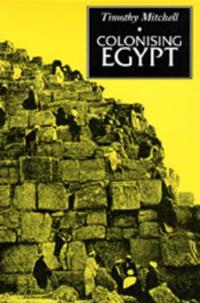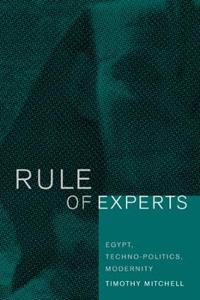Colonising Egypt (Häftad)
avTimothy Mitchell
ISBN: 9780520075689 - UTGIVEN: 199110Extending deconstructive theory to historical and political analysis, Timothy Mitchell examines the peculiarity of Western conceptions of order and truth through a re-reading of Europe's colonial encounter with nineteenth-century Egypt.[...]
Rule of Experts (Häftad)
avTimothy Mitchell
ISBN: 9780520232624 - UTGIVEN: 200211Can one explain the power of global capitalism without attributing to capital a logic and coherence it does not have? Can one account for the powers of techno-science in terms that do not merely reproduce its own understanding of the world? "Rule of Experts" examines these questions through a series[...]
Rule Of Experts (Pocket)
avTimothy Mitchell
ISBN: 9780520274686 - UTGIVEN: 2013-08-01Drawing upon two decades of fieldwork in Egypt, a political scientist and ethnographer offers a sweeping critique of social science theory, arguing that we need to move beyond postmoderism to examine the fundemental constructs of the social sciences: the nation, the economy, and violence.[...]
Carbon Democracy (Häftad)
avTimothy Mitchell
ISBN: 9781781681169 - UTGIVEN: 2013-05Oil is a curse, it is often said, that condemns the countries producing it to an existence defined by war, corruption and enormous inequality. Carbon Democracy tells a more complex story, arguing that no nation escapes the political consequences of our collective dependence on oil. It shapes the bod[...]
Carbon Democracy (Inbunden)
avTimothy Mitchell
ISBN: 9781844677450 - UTGIVEN: 2011-10How do oil and democracy mix? Oil is a curse, we are told, that causes corruption and war, but Carbon Democracy tells a different story. Timothy Mitchell rethinks the history of energy, the politics of nature, the work of democracy, and the place of the Middle East in our common world. He begins wit[...]







